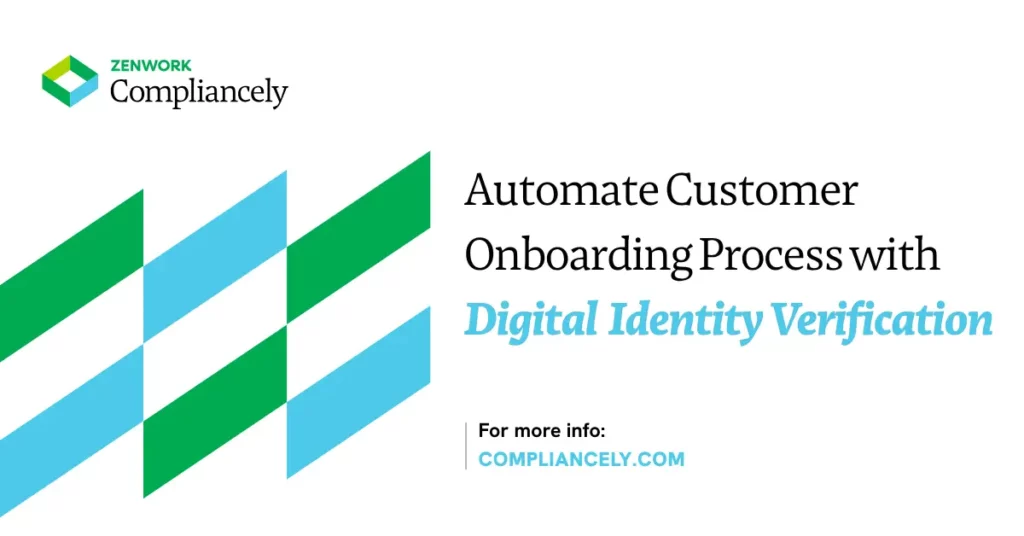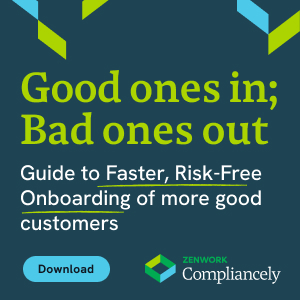Automate Customer Onboarding Process with Digital Identity Verification

The very process of customer identification begins with KYC compliance, wherein the customer identification details, such as the name, address, phone number, social security number, taxpayer identification number, and address are obtained from the incoming customer. The proof of identification is also obtained to support the identity claims made by the customer.
However, soliciting the basic identity information from the customers or clients is not enough to ensure the legitimacy and credibility of the information. For this, you need to validate the details furnished by customers and verify if the records are in good standing per the official sources.
The keyword here is “sources” because while you may verify the details against any database, verifying your details per the federal or government-authorized sources will allow you to retain low-risk profiles that are in good standing with the federal agencies and law enforcement.
Further, verifying your profiles against real-time data lists helps you assess profile risk per your due diligence processes and avoid historic or non-applicable results.
While the very subject of identity verification is quite broad to decipher in a few sentences, we will discuss certain aspects of identity verification in the digital ecosystem, and how automating your customer identity verification process with Compliancely’s digital identity verification infrastructure can help you accelerate and streamline your KYC-centric onboarding operations.
So, let’s get to it.
Streamlining KYC Process
Know Your Client/Customer/Business process begins with obtaining the identification details + proof from your intended profiles. This information is checked to ensure that the details are correct and valid per the official records. Identifying and verifying the social security number or taxpayer-identification number (TIN) or employer identification number (EIN) or ITIN, along with the name of the customer is a must. This allows you to check if the solicited information matches the government records and if the profile is in good standing with the federal agencies.
TIN/SSN Matching per the IRS and Social Security Administration’s records allows you to validate the TIN and name of the profile accurately, enabling you to approve the profile for the successive stages of the KYC process.
Prioritizing AML & ATF Compliance
When the profile details match the federal records, the focus on identification shifts from record-matching to compliance. International regulatory bodies, such as FATF encourage banks, financial institutions, and other business ecosystems to assess the profiles for risk. Although the term “risk” is very broad to define, the regulatory bodies lay down a few red flags to look out for.
When the profile has direct or indirect involvement in the following scenarios, the profile needs to be monitored for substantial evidence and must be reported to law enforcement.
- Engagement with money laundering
- History of engaging in terror-financing regimes
- Engagement in narcotics trafficking
- Engagement in human trafficking
- Engagement with groups or organizations sanctioned by the federal agencies
- Engagement in trade activities with sanctioned parties
- Engagement in arm export activities restricted by the federal agencies
There are many other points to consider when scrutinizing a profile to ensure due diligence within reason. When you come across information that may otherwise categorize a profile as high-risk, enhanced due diligence procedures can help you move on to the successive steps of identity verification. This allows you to maintain consistency within your identity verification procedures.
In such a complex scenario, OFAC watch list, FATCA, Excluded Parties List, Consolidated Sanctions, Arms Export Control Act, and other checks from Compliancely enable you to succeed in your profile validation efforts.
Accelerating Customer Due Diligence & EDD
Due diligence allows you to scrutinize a profile to find leads or factors that may increase the risk potential of the profile. CDD is especially useful when you are onboarding an entity to start a business relationship or when there is a suspicion of non-compliance on the profile you intend to onboard.
A step-up to your due diligence operations would lead you to enhanced due diligence (EDD), which allows you to screen the profile for documentation, legal status, business compliance status, liability status, federal records of non-compliance (or the lack of).
Compared to your customer identification processes, enhanced due diligence for specific profiles are time-taking given how comprehensive the investigations are. However, it is important to scrutinize a profile within reason and feasibility to get valid results. These results, or rather the outcomes of your due diligence process will help you make informed decisions for your business.
Compliancely’s SOS Entity Check, Consolidated Sanctions, List Of Excluded Individuals/Entities, European Sanctions List, Politically Exposed People, IRS Tax-Exempt Org. Search and other checks allow you to obtain enough evidence to back up your claims or citations to reject a potential profile.
Real-Time Digital Identification Process
It is worthy to note that Compliancely only offers real-time identity verification results. This means our databases are in sync with the federal and relevant data lists, allowing us to continuously update our data as and when the federal records are updated. What does this mean to you? Your profiles are automatically re-screened as and when the records are updated to ensure the accuracy of validated records.
While it is important to maintain consistency in your KYC compliance and due diligence operations, accelerating your identity verification operations will allow you to conclude the profile’s validity faster, allowing you to move on to other profiles and make informed decisions.
Compliancely’s identity verification API blends into your business ecosystem, which requires you to make negligible or no changes to your working KYC processes. This means you get to identify, validate, verify, and approve/deny more profiles at a faster rate.
Additionally, the bulk identity verification infrastructure of Compliancely allows you to verify thousands of profiles within minutes, saving your internal KYC-centric teams to save time and effort.

